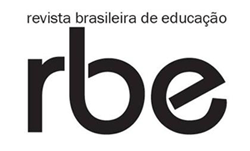This paper discusses three authors who express three typical versions of 18th century European liberalism: Mandeville's liberalism, which fears the people's instruction; Smith's liberalism, which requires a minimal instruction (reading, writing and counting) for all workers; and Condorcet's liberalism, which advocates a common, universal, public, free and mandatory education. Based on the principle of the equality of all human beings, Condorcet opposes Mandeville and goes beyond Smith, as the latter base their positions only on the principle of freedom. The choice starts from the assumption that the confrontation that was established between them might be a benchmark to understand the kind of liberalism that prevailed in the Brazilian Empire, particularly at the time of the electoral reform (the so-called Saraiva Act of 1881) that introduced direct elections and eventually excluded the illiterate from the right to vote. But they could also serve as a benchmark to understand what occurs in Brazil today.
liberalism; Brazil; literacy; schooling
